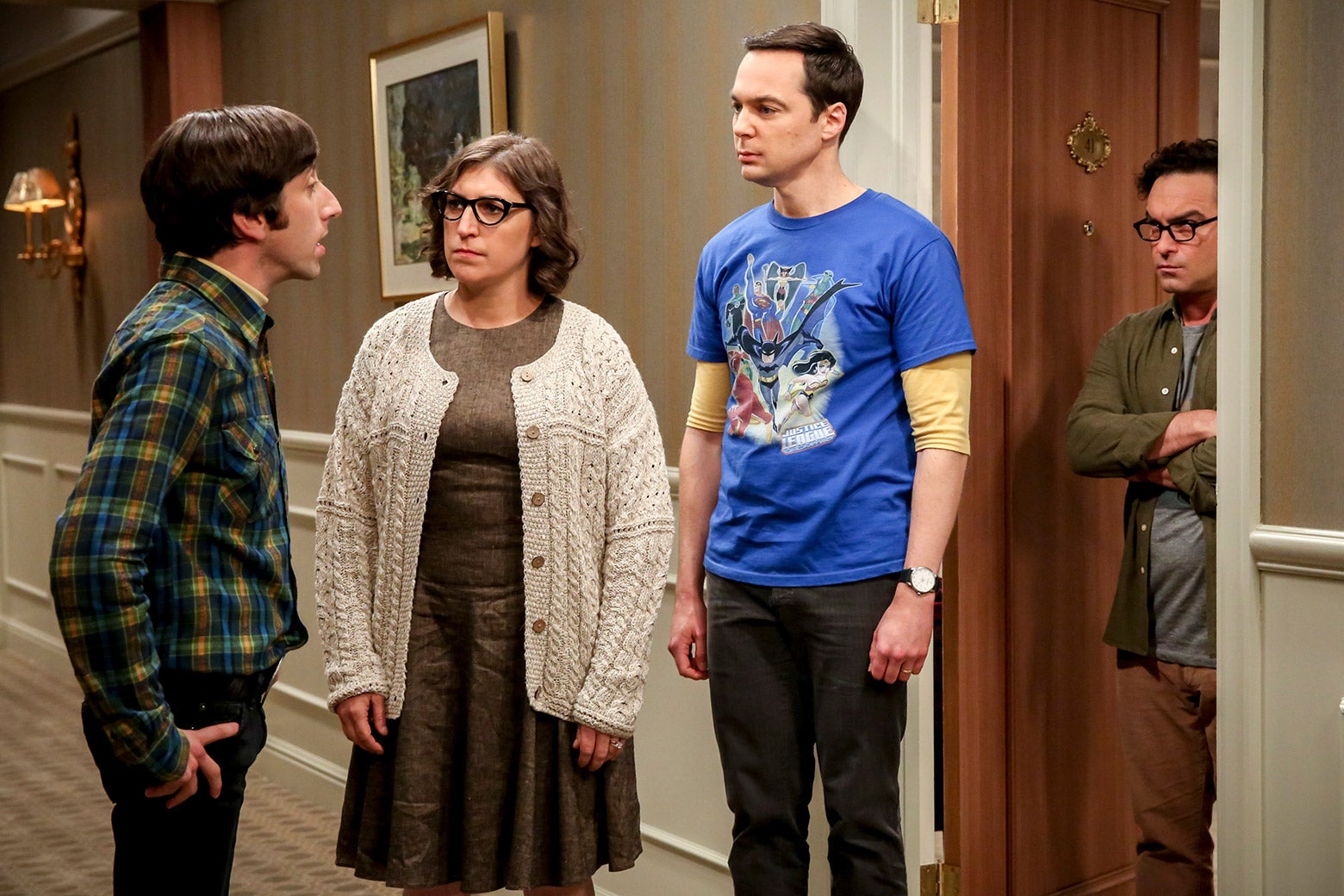There’s one joke that I can never resist telling. If I’m eating out and crêpes are on the menu, I will always say, “People say they’re crêpes, but I think they’re actually quite good.” The response varies according to how long a fellow diner has known me. New acquaintances fake a chuckle, old friends groan, and really old friends memorize the menus of local eating establishments so they can steer us away from places that serve French pancakes.
Long-running TV sitcoms face the same dilemma as my friend group, if on a slightly larger scale. If a situation has generated comedy for multiple seasons—12, say—does that mean millions of people have been laughing at the same “joke” for more than a decade? When a show has enjoyed the success of The Big Bang Theory—which continued to attract massive audiences throughout its run, even as overall TV viewership has declined—the answer is clearly yes.
I’m sure I wasn’t the only person who tuned in to the show I’d abandoned a few seasons back for the two-part series finale on Thursday night. It was like returning to the Mark Trail newspaper comic strip—even having missed approximately 75 episodes, it took no effort to figure out what had happened since I had last visited that Pasadena apartment building: not much.
In the opening scene, everyone and everything looked the same: The hoodies, superhero T-shirts worn over another T-shirt, and bulky sweater vests were still in rotation; the apartment décor hadn’t been updated or the furniture rearranged. Since the show premiered in September 2007, physicist roommates Leonard Hofstadter (Johnny Galecki) and Sheldon Cooper (Jim Parsons) have each found love—marriage even—with neighbor Penny (Kaley Cuoco) and neurobiologist Amy Farrah Fowler (Mayim Bialik), respectively, but the interpersonal dynamics haven’t undergone much of a makeover. Sheldon is still a self-centered egomaniac, Leonard is still exasperated by Sheldon, and Penny still doesn’t understand why her husband puts up with his former roommate. Nor does Amy, even though she is mad about the selfish oaf.
Nevertheless, the theme of The Big Bang Theory’s 278th episode was change. The gang might have been dressed, located, and arranged as they had always been, but instead of waiting for takeout, Sheldon and Amy were now anticipating a call from Sweden, which came in the first few minutes. This is almost certainly the first time two leading characters on a CBS sitcom have won the Nobel Prize in physics.
Then suddenly 12 years of carefully accumulated character traits unraveled. Sheldon’s self-confidence disappeared (at least temporarily). Despite many episodes in which friends Penny and Bernadette had gently tried to update her wardrobe, Amy suddenly realized that she looked “frumpy” and underwent a total transformation in the hands of TV’s most metrosexual sweater vest–wearer, Rajesh Koothrappali (Kunal Nayyar). And in the finale’s second half, Penny, who had always insisted she didn’t want children, was apparently excited to find herself pregnant.
One thing remained constant, however: Sheldon’s inability to consider other people’s feelings. As the Nobel ceremony neared, the friend group started to splinter. With kids back home in Los Angeles (Howard and Bernadette) or currently gestating (Penny and Leonard), the gang’s patience for tolerating the tantrums of a petulant man-child was evaporating.
It will surely come as no surprise to learn that the friendpocalypse was averted. Over the course of nearly 300 weeks, Raj learned to talk to women, Howard stopped letching, Penny found a career she was good at, Leonard somehow managed not to kill Sheldon, and in the very final episode Sheldon got in touch with his emotions. I’m not sure if they got the physics exactly right, but The Big Bang Theory somehow ended not with a breakup but an “I love you.”
